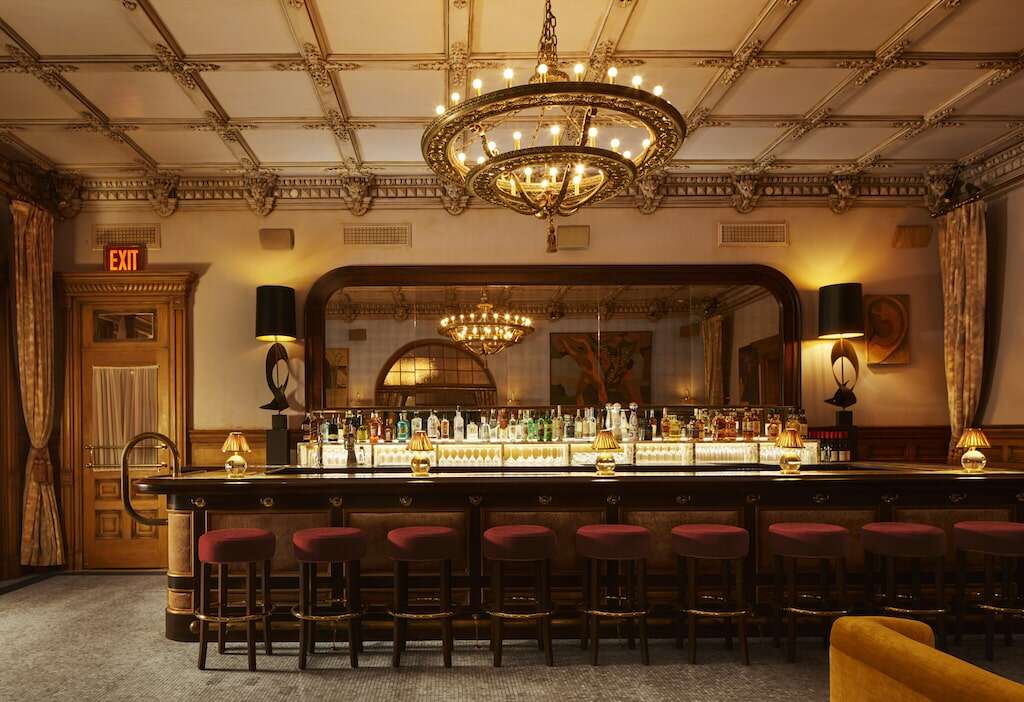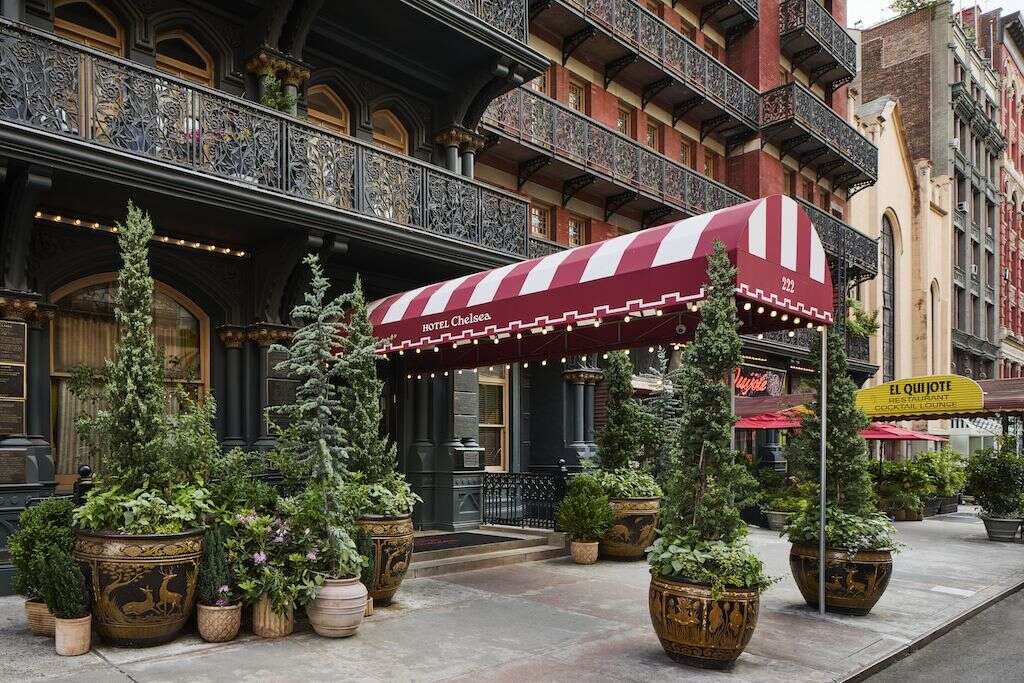A New York City hotel in disrepair has received a much-needed makeover. What’s the big deal? Unpacking the grand relevance of the iconic Hotel Chelsea feels like an overwhelming task. A revered cultural landmark, this establishment has influenced many key periods of music, art, film, literature, poetry and lifestyle. Tales of the building’s past continue to ripple through pop culture, making it as significant to Leonard Cohen fans as it is to teenage Swifties.
The building, at the time the tallest in Manhattan, opened its doors in 1884 as one of New York City’s first apartment cooperatives. Over the beginning of the 20th century, its use and ownership evolved, eventually becoming the notorious hotel cum long-term tenant refuge.
[See more: The Ritz-Carlton New York, NoMad: The Best of Midtown]
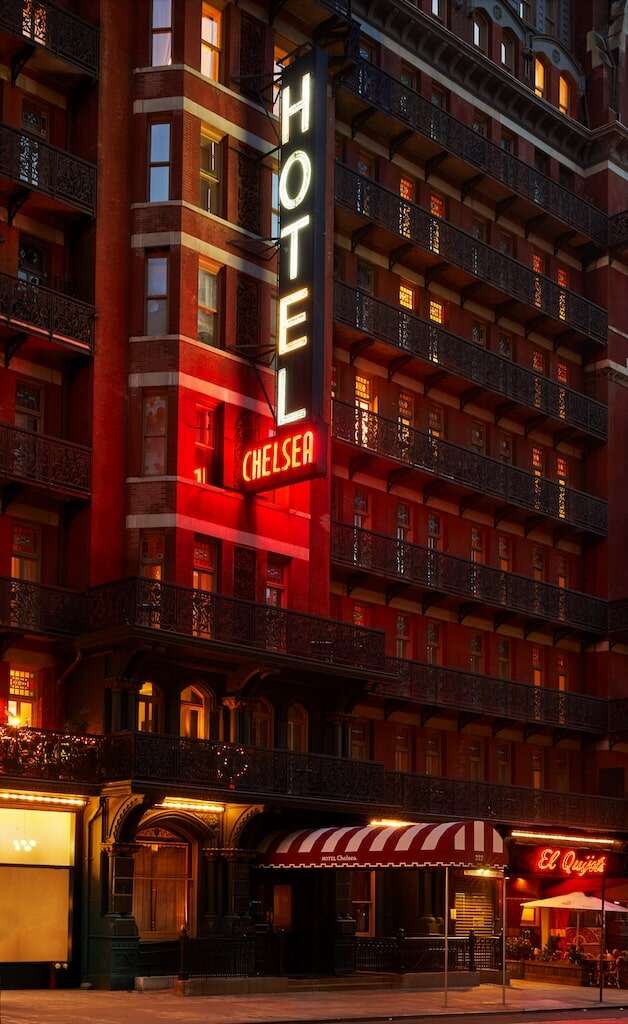
Tennessee Williams, Arthur Miller, Stanley Kubrick, Janis Joplin, Bob Dylan, Andy Warhol, Joni Mitchell, Madonna – name a notable 20th-century creative, and chances are they stayed, lived or at least passed through its famed halls. Fantastic stories of genius inspiration, renowned encounters, and great minds meetings have emerged from the hotel’s history, shaping it into a globally worshipped cultural cathedral.
Longtime resident Patti Smith credits the relaxed and unorthodox management of Hotel Chelsea for its transformation into a melting pot of bohemia and rock and roll. Embracing the scraggly appearance, chaotic lifestyle and destitute circumstances of the city’s creatives, Stanley Bard, the hotel’s manager from the early 1970s, is still celebrated for allowing notable residents to pay their rent with works of art.
[See more: Experience a New Kind of Luxury at The New York EDITION]
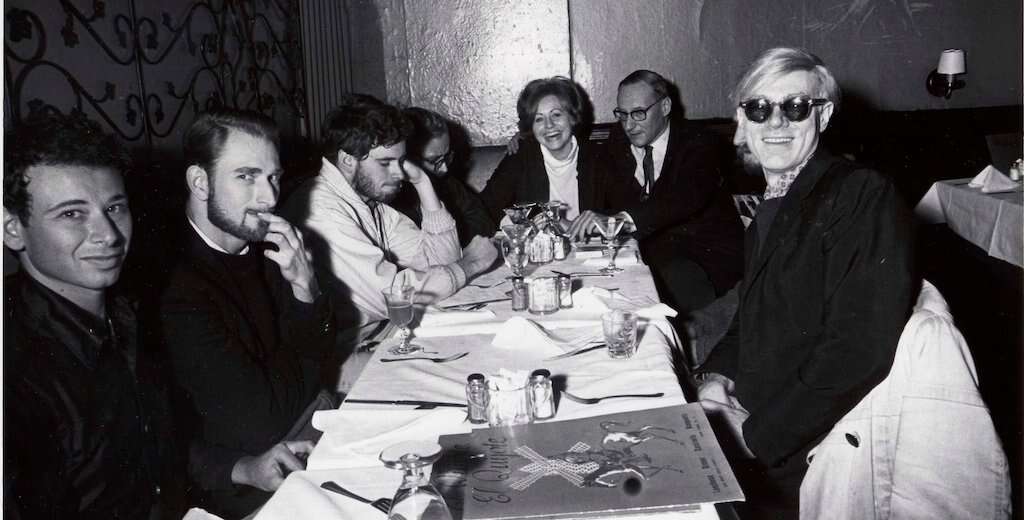
Housing generations of forever-immortalized troubled artists inevitably comes with a certain level of chaos. Hotel Chelsea became synonymous with stories of rampant drug use, fires, violence and murder (most famously that of Nancy Spungen by Sex Pistols’ Sid Vicious). By the early 2000s, the hotel’s disrepair became impossible to ignore.
After a series of failed takeovers and strenuous legal battles, the property came into the hands of Sean MacPherson, Ian Drukier and Richard Born. A lengthy refurbishment process began (with long-standing residents still in situ), and the hotel officially reopened to the public in 2022.
While the red brick facade, neon sign, gifted art pieces and 40 original tenants remain, I was curious to see whether the bohemian atmosphere of the hotel had been preserved. It was widely agreed refurbishments were needed, but would a modern-day five-star makeover sanitize – or worse, erase – the cultural heritage of the establishment?
[See more: Savile Row Tailor Richard Anderson on Outfitting New York]
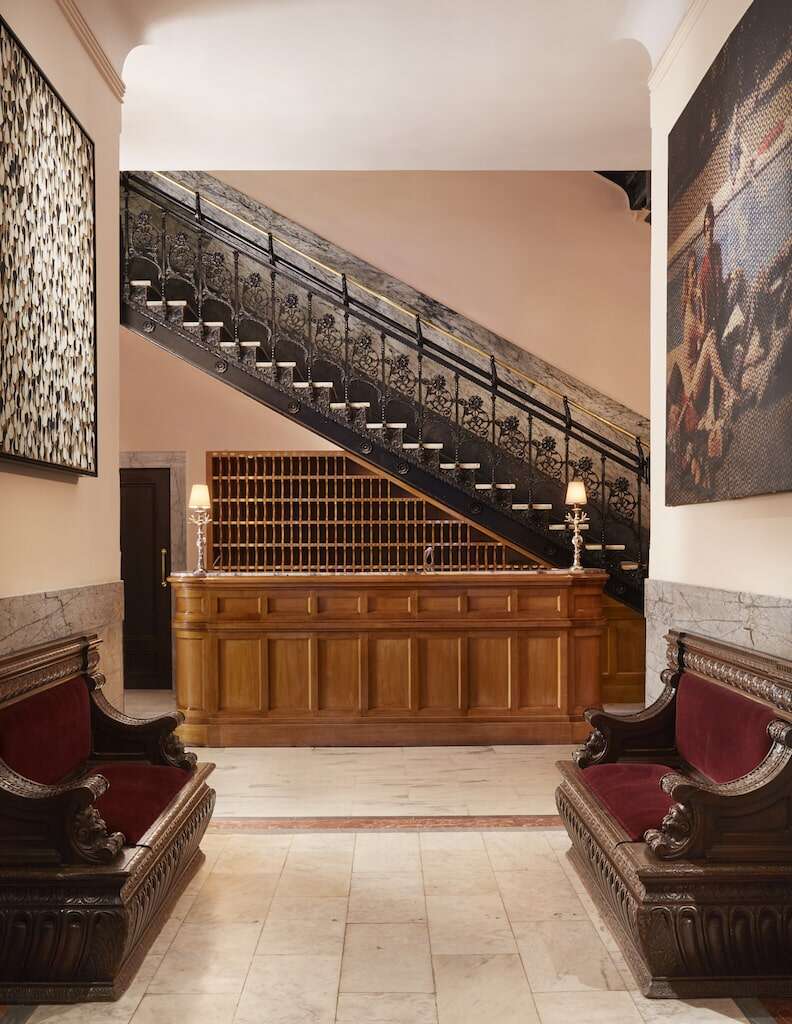
Stay
The hotel now houses 158 guest rooms with an impressive number of suite options. Interiors are fun and eclectic, with deep purple sofas, tiger-print dining chairs, brass finishes and contemporary chandeliers. Mismatched decor, carefully curated minibars, and Marshall Bluetooth speakers pay tribute to the establishment’s rock and roll past, infusing an element of cool into the five-star experience. Custom red-piped linens and embroidered microfiber bathrobes give a five-star feel. If you want to experience the height of decadence, opt for a suite with an oversized marble soaking tub.
The larger suite options offer fully functioning kitchens, which are all astonishingly sizable for Manhattan and boast a fantastic array of amenities. Some suites are even complete with their own washing machines and dryers (again, a rarity for New York). The liveable feel of the accommodations is intentional; the hotel encourages guests to feel at home and warmly welcome those who require a long-term stay, in a nod to the building’s past.
When wandering through the halls, it is striking how apartment-building-like the space feels. Corridors are uncarpeted, wide and echoey. Select rooms allow the original features of the building to shine. Stained glass windows angle colorful beams of light across high ceilings, and intricate fireplaces sit proudly in the living space. Original iron stretch balconies offer fantastic views of the iconic red neon sign, and for a moment it seems only Manhattan’s skyscrapers can give away the modern era.
[See more: The 29 Best New Hotel Suites in the World]
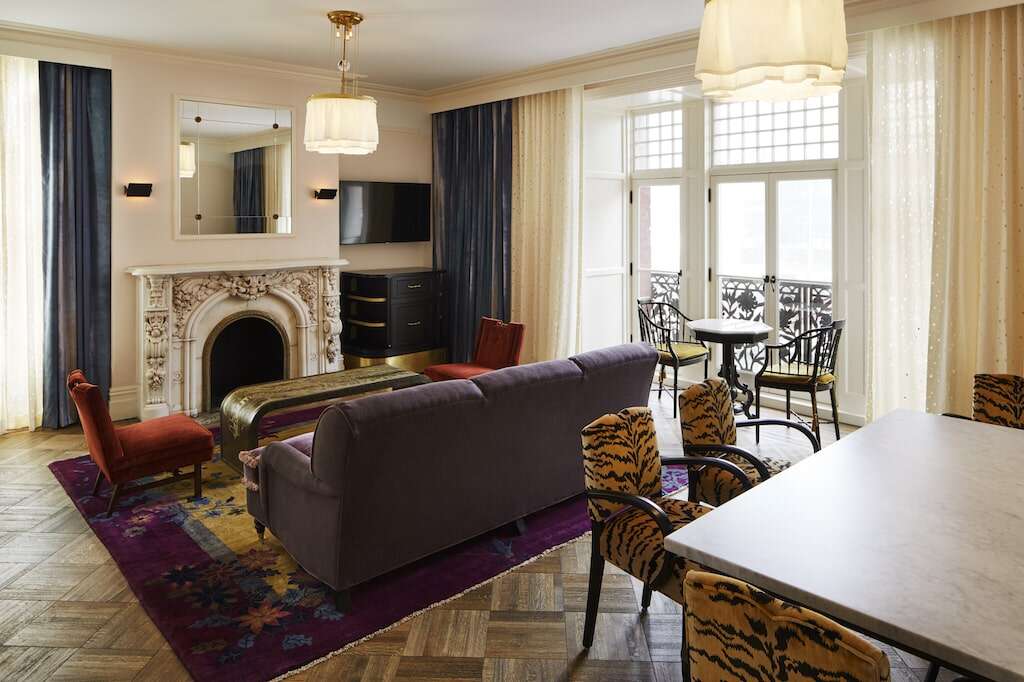

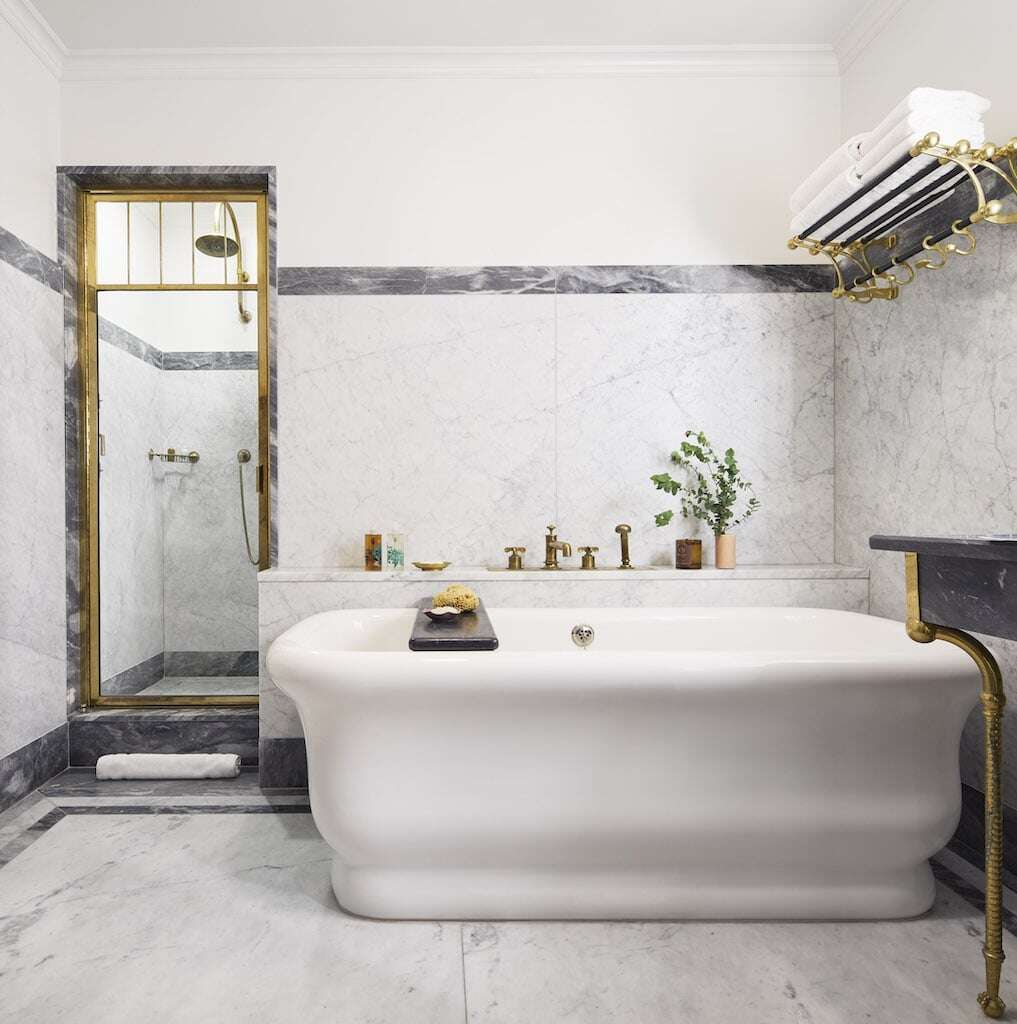
Dine
The hotel’s original restaurant, El Quijote, first opened in 1930, inspired by Miguel de Cervantes’ legendary novel Don Quixote. The buzzy Spanish establishment became one of the longest-running restaurants in New York City, attracting a range of icons from Janis Joplin to Jimi Hendrix.
Thankfully, many of the restaurant’s original details have been kept and restored. You can still dine under the original ceilings, on the original floors, surrounded by the establishment’s signature Don Quixote mural. A lively stooled bar makes a wonderful addition to the space; home to hundreds of quirky colored lights and a mixologist who makes the most fabulous sangria. Even after the refurbishment, there is still an ‘if walls could talk’ heaviness about the place. Intimate booths give the crowd a sense of mystery, and large-scale art pieces and multifaceted, intricate decor could have you peering around the small space for hours.
[See more: The Best Hotels in Washington, D.C.]
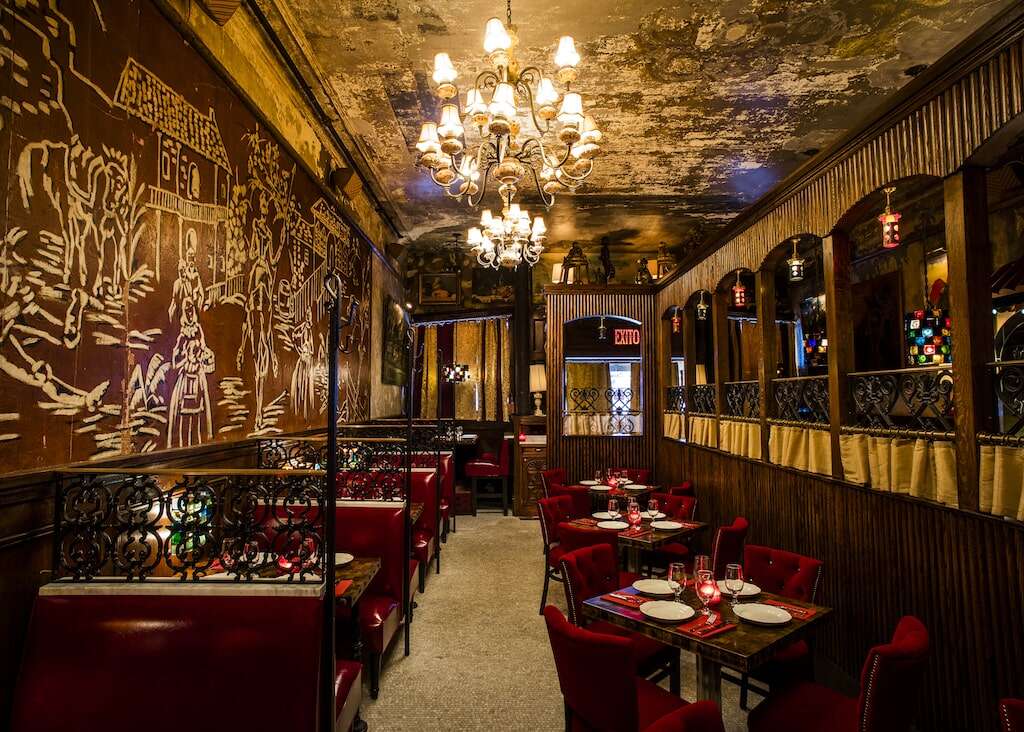
To top the experience off, the food is exquisite. Inspired by cuisine from Catalunya, the Basque Country and Valencia, starters imitate traditional tapas. Simple but quality ingredients make for tasty bites, but make sure to save yourself for the main courses – I recommend lobster if you’re hungry, surf and turf if you’re ravenous.
After dinner, stumble into the Lobby Bar. Accredited as the ‘living room’ of the hotel, the original ceiling and mosaic floors remain. The cocktail menu consists of house creations such as the 1884 Martini and Viva Superstar, as well as classic libations inspired by iconic bars from around the world. Try the Dukes Martini from Dukes Hotel London. A newly built verdant solarium allows guests to take late-night conversations out into the city’s warm summer air.
For breakfast, we head to Cafe Chelsea. Brand new with the refurbishment, Cafe Chelsea was designed to complement the historic building. Offering delicious coffees, pastries and cooked breakfasts in the morning, the restaurant transitions in the evenings to serve up French-inspired cuisine.
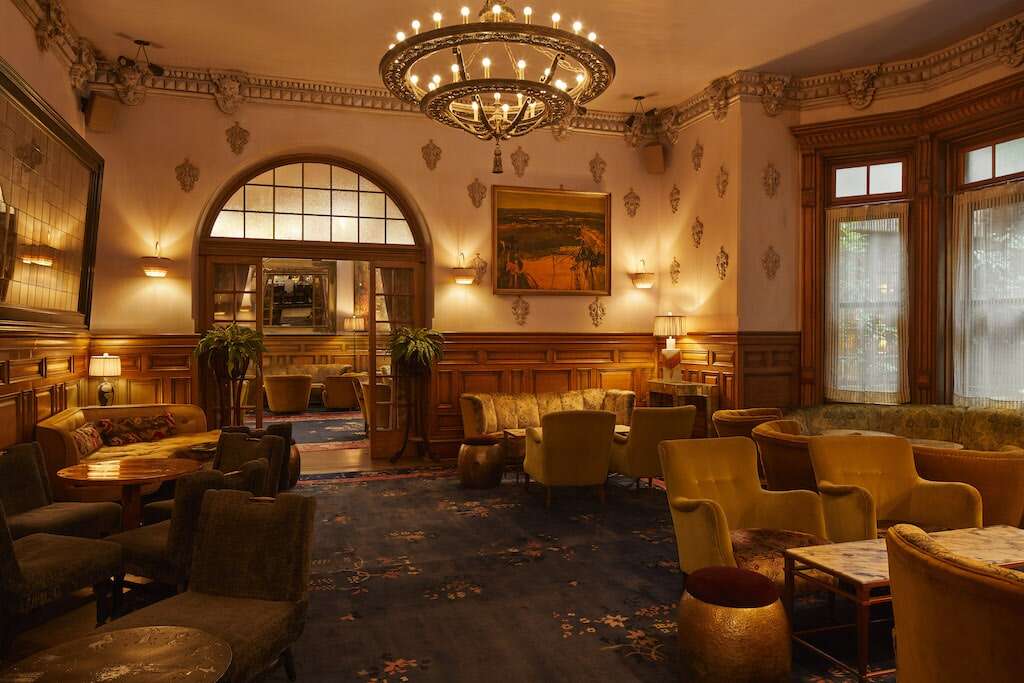
Relax
The Spa at Hotel Chelsea is perched on the rooftop, where guests can enjoy a range of personalized treatments in partnership with Dr Barbara Sturm, Votary and Sangre de Fruta. Arrive early, and enjoy access to the traditional Swedish sauna and steam room.
Treatment rooms are charmingly unconventional. Original vaulted brick ceilings and windows overlooking the city skyline give the spa a uniquely urban feel. Bob Dylan sings peacefully over Marshall speakers, and many of the rooms feature a standalone soaking tub, used for holistic hydrating.
[See more The 6 Best Spas in Las Vegas]
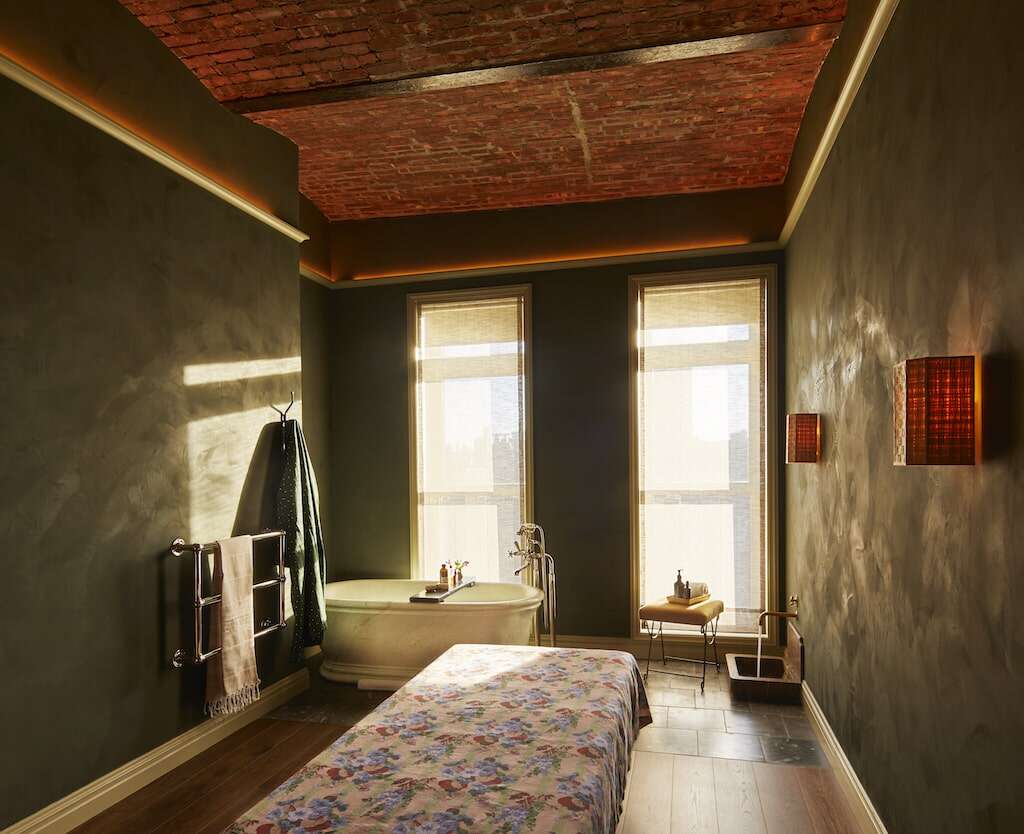
I opted for the Sacred Signature. Surprising for a facial, the experience began with a foot cleansing ritual in the treatment room’s carved limestone basins. After speaking with my spa therapist, I felt myself completely relax as my face and neck were cleansed, steamed, and nourished in a completely personalized experience. The crown revival (an optional extra) is inspired by the Ayurvedic tradition of Shirodhara. The hair and scalp treatment provides a sensory oasis, calming the mind and soothing the nervous system and leaving me with lusciously silky hair.
After your treatment, be sure to make time for in-robe relaxation on the landscaped terrace and tea sipping by the fireplace lounge.
[See more: The Best Spas in Los Angeles]
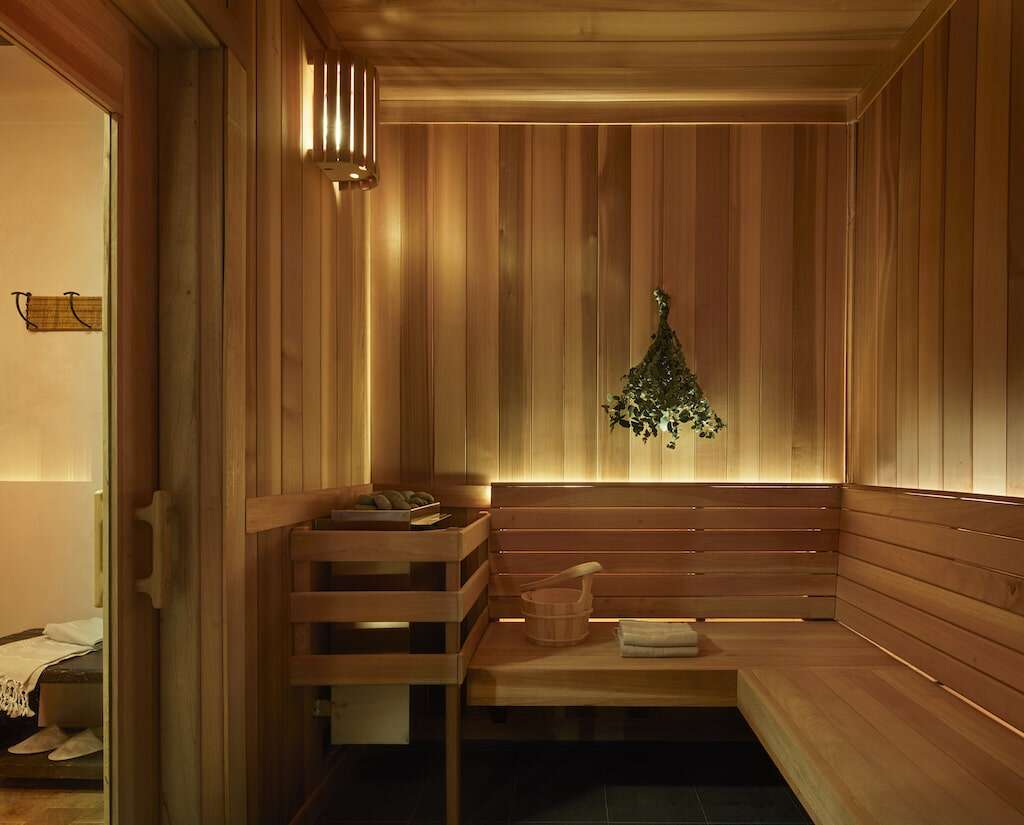
Explore
Situated in the historic Chelsea neighborhood, the hotel is mere steps away from many of the city’s major landmarks. The High Line, a former train track turned landscaped walkway and outdoor gallery, is practically on your doorstep. If the hotel’s own art collection wasn’t enough, the Gagosian Gallery and Whitney Museum of American Art are within easy walking distance. For music lovers, Madison Square Garden is just a couple of blocks away.
Even post-refurbishment, the hotel itself is as much of an attraction as any of the city’s famed landmarks. People-watching in the famed lobby, walking the storied halls, enjoying a drink at El Quijote, and catching glimpses of the remaining permanent residents left me drunk on the spirit of New York.
Is there a chance that Hotel Chelsea will return to what was? It’s impossible to imagine the rooftop gym and plush chandelier bar becoming the center of a modern rock and punk movement. However, even awash in flawless five-star luxury, the magic of Hotel Chelsea remains palpable, and I felt grateful for every nod to the structure’s fascinating past.
